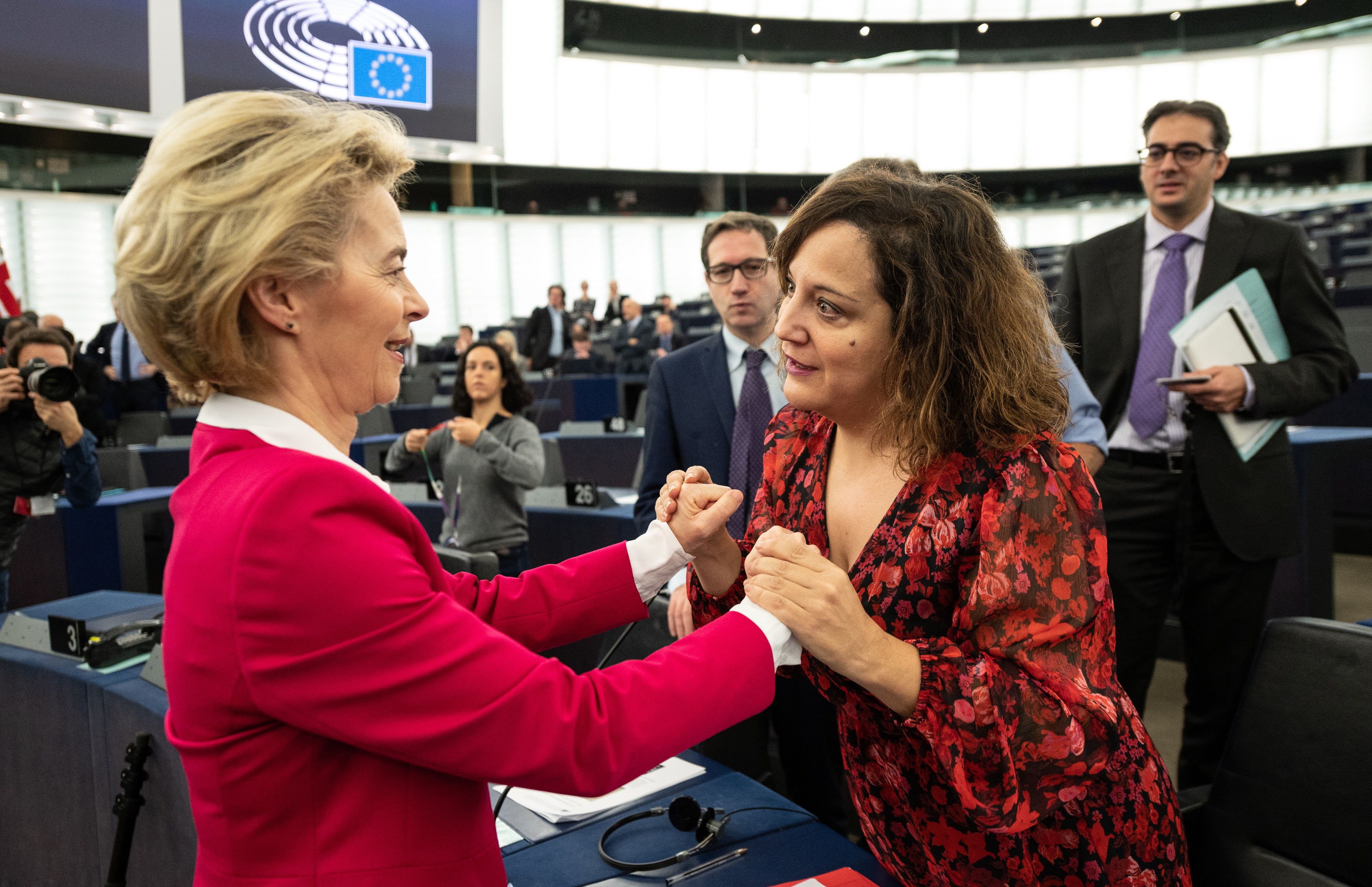Many nerves were at breaking point in the European Parliament last Thursday, but in particular those under tension were Spanish nerves. MEPs from Spain had great difficulty accepting that the ruling by the European Court of Justice (ECJ) that very morning was a comprehensive victory by the supporters of Catalan independence: firstly, by confirming the immunity of the jailed pro-independence politician Oriol Junqueras as an elected member of the European Parliament and thus convicted by a flawed trial; and secondly, through the subsequent recognition of Junqueras's former pro-independence colleagues Carles Puigdemont and Toni Comín as being in possession of all their rights as MEPs.
In the French newspaper Libération, journalist Jean Quatremer chronicled the events under a hard-hitting headline: Crise de nerfs espagnole à Strasbourg - "Spanish tempers snap in Strasbourg" - which refers to the controversial incident centred on Spanish Socialist MEP Iratxe García, a very close partner of Pedro Sánchez in the European chamber, who tried to pressure the European Parliament president, David Sassoli, to avoid ruling on the ECJ's decision until after the Christmas break.
The French journalist tells the story of how at noon on Thursday, there was a great sense of anticipation surrounding Sassoli's imminent reaction to the ECJ ruling, which had just been announced, and that "after thirty minutes delay," Sassoli, looking "a little more animated than usual", appeared before the plenary session to read a statement specifying that he would comply with a sentence making it clear that Spain "cannot require that elected MEPs first take an oath of fidelity to the Spanish Constitution in order to be recognized as MEPs."
Lost temper
But the really key elements to the story, says Quatremer, were those that had gone on behind the scenes, to enable "three hated Catalan separatists", including Carles Puigdemont, to acquire full MEP status "and above all, to have parliamentary immunity, which would make them untouchable."
"Worse still," Quatremer continues, the ruling made it clear that "Oriol Junqueras's sentencing to 13 years in prison for 'sedition' was illegal, since it was pronounced after the European parliamentary election." That, he explains, is why the Spanish Euro-politicians tried to postpone the parliament's decision, and here the chronicler points to a connection between this postponement attempt and the fact that, previously, "the Parliament and the Commission had supported Spain before the Court of Justice,” which now left them looking, at the very least, embarrassed.
The episode with Iratxe García is narrated as follows: "The Spaniard Iratxe García, president of the Socialist group, demanded a meeting with the Parliament's president before the resumption of the plenary session." A meeting thus took place in a private room in the Strasbourg chamber in the presence of a "swarm of Eurocrats'', but its tone rose suddenly as García realized that David Sassoli was not going to budge from his position and she lost her temper.
"You can't do this to Spain!"
"You can't do this to Spain!" shouted Garcia, and then, infuriated, she "threw her papers onto the floor." Sassoli, however, "did not give in to the Spaniard's violence."
Shortly afterwards, Quatremer explains, Carles Puigdemont and Toni Comín headed to the European Parliament to collect their accreditation as newly-reinstated MEPs. Once again, from the Spanish side, there was an attempt to hide what was happening and minimize its importance - the Catalan MEPs, it was said, were only receiving a "temporary one-day pass". But, as Libération tells it, "in the general panic, in the media crush", someone made a mistake and the parliamentary passes handed out were valid for not a day, but a whole year. So ended a morning in which Spanish MEPs nerves were left frayed - and some of them had clearly snapped.

